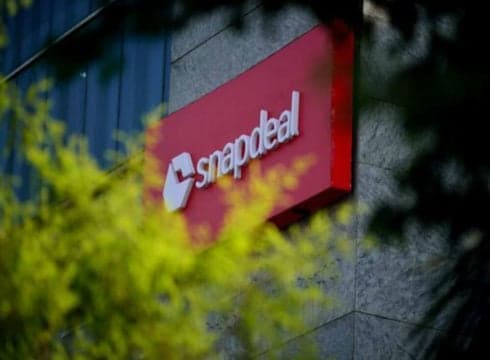Snapdeal said new structure is optimised to enable pursuit of long-term value creation for all shareholders
In the last one year, Snapdeal has sold off Freecharge, and Unicommerce
Snapdeal had recently announced that it is cash flow positive in June 2018
Inc42 Daily Brief
Stay Ahead With Daily News & Analysis on India’s Tech & Startup Economy
In a journey to start from the beginning after more than a year of troubles, ecommerce player Snapdeal has now converted the preference shares of all its stakeholders, including SoftBank and Nexus Venture Partners, into equity shares, according to documents filed with the Registrar of Companies (ROC).
The development was first reported by MoneyControl. One of the major stakeholders of Snapdeal, Nexus Venture Partners told Inc42, “We welcome and support this simplified, growth-oriented capital structure for Snapdeal, that aligns the interests of employees, shareholders and the broader Snapdeal community. This step will foster further innovation to best serve our loyal customers.”
It is to be noted that simplification of a capitalisation table is seen as a preparation of a public listing as a simple capitalisation structure is favoured by the market. The company, however, is not anywhere near a public listing. Thus, the change in cap structure here may also attract new investors if the company wants to take the private route.
As a result of this conversion, the company now has a single class of shareholding and all shares of the company have the same economic value.
Also, this may benefit the executives with employee stock options (ESOPs) whose shares will have the same value as compared to the biggest shareholder on the board, in this case, SoftBank.
SoftBank spokesperson told Inc42, “We are happy to support the creation of a capital structure at Snapdeal, that is aligned with the growth objectives of the company and also rewards the team that is building the business.”
Snapdeal, which once held the No. 2 spot in the Indian ecommerce industry, has been in troubled waters for the past few years, with frequent office changes, bursts of hirings alternated with layoffs, and investors writing down investments. It was even dragged to the courts by some of its sellers over alleged non-payment of dues.
Recently, founders Kunal Bahl and Rohit Bansal had informed employees that the company has been cash flow positive in June 2018 which means that the company is now earning money from its business. They also claimed that the company has no current or future dependency on funding, has made the industry sit up and take notice.
Here is a small dive into the past, asserting major events the company has gone through:
It is being further speculated that the company is currently focussing on the sale of high margin categories such as home decor, general merchandise and apparel among other things and is learnt to have reduced its cash burn heavily as compared to the last couple of years.
With Indian ecommerce industry expected to reach $200 Bn by 2020, the competition doesn’t seem to lighten up at any moment. Here’s a quick update of happenings in Indian ecommerce:
- Walmart acquired 77% stake in Flipkart for $16 Bn
- Google plans to enter the Indian ecommerce industry as a solo player
- Amazon may buy a stake in Future Retail, More and Spencers’
- The Indian government is addressing issues of Ecommerce Policy
{{#name}}{{name}}{{/name}}{{^name}}-{{/name}}
{{#description}}{{description}}...{{/description}}{{^description}}-{{/description}}
Note: We at Inc42 take our ethics very seriously. More information about it can be found here.


